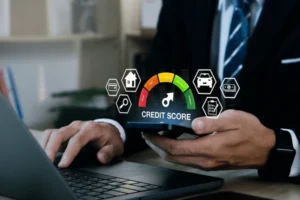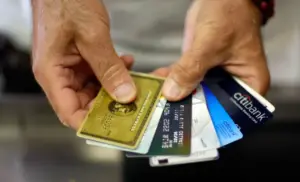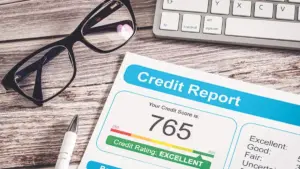🔍 Understanding Credit Fraud
Credit fraud happens when someone uses your personal or financial information without your permission to commit financial crimes—such as opening accounts, making purchases, or applying for loans. This unauthorized activity can severely damage your credit score and financial reputation. Fraud can occur through phishing emails, data breaches, stolen wallets, or fake calls pretending to be from banks or government agencies. Being aware of how fraud works is the first step in protecting yourself and your credit.
📉 How Fraud Impacts Your Credit Score
When fraudsters misuse your identity, they often rack up unpaid bills, max out credit cards, or open multiple accounts—all of which negatively affect your credit score. Missed payments, high credit utilization, and collections can cause your score to drop significantly. If the fraud goes undetected, it can affect your ability to secure loans, rent property, or even get a job. That’s why early detection and quick action are essential to minimize the damage and restore your credit health.
🔐 Monitor Your Credit Regularly
Monitoring your credit is one of the most effective ways to catch fraud early. Use trusted credit monitoring services that alert you to changes in your credit report, such as new accounts, hard inquiries, or sudden drops in your score. Many services offer real-time alerts, monthly updates, and identity theft protection. By keeping a close eye on your credit activity, you can respond quickly to suspicious behavior and prevent long-term consequences.
📲 Use Strong Passwords and Two-Factor Authentication
Your online accounts are gateways to your financial life. Always use strong, unique passwords for banking, credit card, and financial apps. Avoid using easily guessed passwords like birthdays or pet names. Enable two-factor authentication (2FA) wherever possible—it adds an extra layer of security by requiring a second form of verification, such as a code sent to your phone. These simple steps can prevent hackers from accessing your sensitive data and committing fraud in your name.
🧾 Review Your Credit Reports for Errors
You’re entitled to one free credit report per year from each of the major bureaus—Equifax, Experian, and TransUnion. Review these reports carefully for unfamiliar accounts, incorrect personal information, or suspicious activity. If you spot anything unusual, report it immediately. Disputing errors quickly can prevent long-term damage to your credit score. Consider checking one report every four months to stay consistently informed and protected.
🚫 Freeze Your Credit When Necessary
If you suspect fraud or want to prevent unauthorized access to your credit, consider placing a credit freeze. A freeze restricts access to your credit report, making it difficult for identity thieves to open new accounts in your name. You can still use your existing credit accounts and temporarily lift the freeze when applying for new credit. It’s a powerful tool for protecting your financial identity, especially during periods of increased risk or after a data breach.
🧠 Educate Yourself and Stay Informed
Fraud tactics are constantly evolving, so staying informed is key to protecting your credit. Follow reputable financial blogs, subscribe to fraud alerts, and educate yourself about the latest scams. The more you know, the better you can defend yourself. At My Personal Credit Advisor, we believe that financial literacy is your best defense. We regularly share tips, updates, and resources to help you stay ahead of fraud and maintain a strong, healthy credit score.




